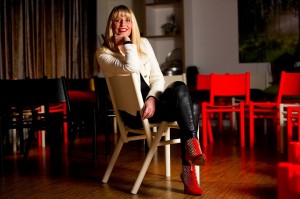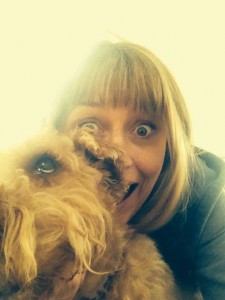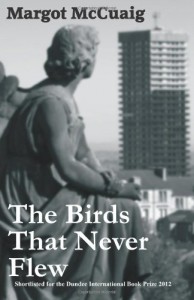Documentary writing: Different from fiction?
Margot McCuaig writes fiction and makes documentaries. We asked her if she could provide us an insight into the differences between the two.
 Writing fiction and writing, producing and directing factual documentary films are different disciplines. To some extent at least the creative processes are poles apart.
Writing fiction and writing, producing and directing factual documentary films are different disciplines. To some extent at least the creative processes are poles apart.
Fiction is freestyle; it is frequently an embodiment of the writer’s mind, heart and soul, the dilution or embellishment of people and memories, a complex explosion of inspiration that forms a narrative strand and becomes a haunting or beautiful story.
In contrast recounting a story in documentary form is accurate, its narrative is wholly reflective of that thing fictional writers often stay away from, truth. Where a novel is generated from a seed of something that non-writers may regard as nothing, a doc is a valuable interpretation of an actual moment or event in time. Its testimony is precise and powerful.
That’s one interpretation. However, in my experience as a writer of both disciplines, factual and fiction are indeed different, but they are also so similar you could be forgiven for thinking that some of the elements are exactly the same. Indeed, often the twain meet.
When we write a novel our characters’ dialogue, background and surroundings drive the narrative. We use our personality to tell ‘another’s’ story, drawing from the complex persona of fictional characters to create a sense of belonging and an understanding of where the plot is taking the reader. It is fiction, and therefore freestyle, but that said we are using key devices to generate our outcomes.
I n documentary film making we are actually doing a very similar thing. The testimony of programme contributors is the equivalent of our fictional dialogue; they are the characters we want our viewers to engage and emphasise with. Similarly, the voice-over and film cutaways are our prose, our positioning of place, and as with the narrator in fiction, they provide the context for the viewer in television.
n documentary film making we are actually doing a very similar thing. The testimony of programme contributors is the equivalent of our fictional dialogue; they are the characters we want our viewers to engage and emphasise with. Similarly, the voice-over and film cutaways are our prose, our positioning of place, and as with the narrator in fiction, they provide the context for the viewer in television.
These key elements set the scene and illustrate the testimony in a visual format. In fiction we describe what we want the reader to see, in documentary film we show the viewer. In fiction our dialogue is crisp, definitive, true to the characters; in factual it is accurate, sharp, edited honestly so it delivers the point objectively and as dramatically as possible.
When I’m working in each discipline I use different tools to deliver the same objective. Before I begin making a documentary I will have a firm sense of what the story is before I film anything (sound familiar fiction writers?). Once I have an understanding of the hypothesis established in my mind (in fiction you’re replacing this with plot) I will interview the programme contributors at length, (in fiction we call them characters!) recording their personal testimony on tape, capturing their personal reflections and experiences in extended conversation.
In fiction while our characters’ dialogue is fabricated, in a sense they are being interviewed too, albeit via the writer’s mind. Like the interviewee, the character often takes control, talking to us in long-form, frequently over-telling the story, insisting on providing us with information that isn’t really relevant to the plot, making their point in a long, drawn out fashion that needs attacked with an editing siphon. You can see it can’t you, how the twain meet, factual and fiction, contributors and characters telling stories that you have to step away from, review and then siphon to reveal the absolute essentials of the story.
 Consequently, the editing process of both embodies the same approach. Is the character/contributor being precise, is he or she recounting the information that’s pivotal to the narrative in an engaging, interesting and, where relevant, dramatic way? Is the testimony reflective of the moment, is it moving the story on? Does it illustrate the context and help the reader/viewer understand the story?
Consequently, the editing process of both embodies the same approach. Is the character/contributor being precise, is he or she recounting the information that’s pivotal to the narrative in an engaging, interesting and, where relevant, dramatic way? Is the testimony reflective of the moment, is it moving the story on? Does it illustrate the context and help the reader/viewer understand the story?
In factual and fiction, we’re looking for the same outcome, a confident story that draws our reader or viewer into the narrative and keeps them there, turning pages or staying with the doc as it moves from scene to scene. In documentary film instead of chapters we have what’s often referred to as the ‘three-minute rule’. This is essentially a device where we change the pace or setting and add another strand or element of reveal to the film at timely intervals. Essentially these moving sequences are visual chapters designed keep the viewer watching and engaged in the narrative. Likewise, in novel writing we end a chapter and compel the reader to come back for more.
The processes are very similar although at a personal level there are differences. When I’m working in factual I know exactly where I’m going, the film is a reflection of the truth and can’t deviate from thus so before I go into the edit I am hugely disciplined. On paper I outline every frame of the film, editing the contributors’ testimony so it is precise and poignant, using a skeleton voice-over until I cut the voices on screen.
Once they are telling their story in the right place, at the ideal pace, I add the narrative, writing it is so it accurately reflects the testimony and establishes the context and scene concisely. The process is tight, focused and most importantly absolutely specific. Then I add the colour, the visuals that portray the story with moving facts or illustrative context. Working with facts is a huge responsibility, equally so when it is factual entertainment where it is your duty as a writer to captivate your viewer from start to finish.
All this really helps when I’m editing fiction. I thoroughly enjoy the edit process because I learned how to do it objectively in making television. Sometimes it’s really hard to delete a favourite or funny soundbite from a film but when there’s no place for it, it simply has to go. That’s the same in fiction.
You might think you’ve written the most beautiful sentence ever written but if it doesn’t fit then you have to highlight it and go through with the inevitable. When I delete a sequence from my film timeline I bid it farewell and I send it on its way with a ‘goodbye’ and a wee salute. I reserve that wee process for TV editing only, if I was doing that with fiction I’d probably lose my voice!
So, often the twain shall meet, but fortunately for me, not in the actual writing process. Where I am specific and precise in writing a documentary, in fiction I’m in freefall, losing myself in narratives that soar and fall and then climb to the highest unlit star all over again. I love both forms; their crossovers and their individuality make me a very lucky writer indeed.
—
Margot writes fiction and her debut novel The Birds That Never Flew was shortlisted for the Dundee International Book Prize in 2012 and published in 2013. She’s currently writing another and loving the blissful freefall of fiction… She works in television in Glasgow, Scotland, and is the Managing Director of one independent production television company and co-owner of another.
Her documentary films and mobile apps are acclaimed and recently nominated for RTS awards. Her work has taken her to amazing places and she has interviewed lots of celebrities and extraordinary people but she loves nothing better than spending time with her children or fuelling her creative spirit at her rural home on Rathlin Island.
Margot is a womentoring mentor.
Find out more about her on her website: http://mjmccuaig.blogspot.co.uk/
Follow her on twitter: @MargotMcCuaig
Category: Contemporary Women Writers, On Writing


























Excellent post Margot, thank you. You capture perfectly how the two genres intertwine and separate – same craft aimed at the same effects but with specific material requiring different process. I write fiction and narrative non-fiction and find that the difference in process is mostly what goes on inside my head with planning, and decisions about selection and verification, rather than how words are expressed on the page.
Thank you so much, it’s really interesting to know that you have a similar process and I think that is because you are a writer. I often find that other documentary makers – those who only make TV – are much less structured in the edit process and try and make their programme in the edit rather than on paper in the first instance. I think if they also wrote fiction they would work differently..